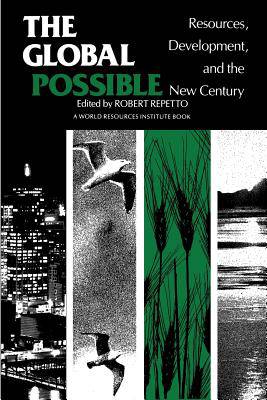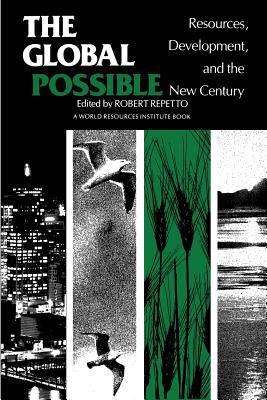
Bedankt voor het vertrouwen het afgelopen jaar! Om jou te bedanken bieden we GRATIS verzending (in België) aan op alles gedurende de hele maand januari.
- Afhalen na 1 uur in een winkel met voorraad
- In januari gratis thuislevering in België
- Ruim aanbod met 7 miljoen producten
Bedankt voor het vertrouwen het afgelopen jaar! Om jou te bedanken bieden we GRATIS verzending (in België) aan op alles gedurende de hele maand januari.
- Afhalen na 1 uur in een winkel met voorraad
- In januari gratis thuislevering in België
- Ruim aanbod met 7 miljoen producten
Zoeken
€ 115,45
+ 230 punten
Omschrijving
Can the world reverse current deterioration of resources and the environment, while at the same time promoting a better quality of life for all? Experts in various areas of environmental research and policy here offer a broad overview of the state of the world's threatened resources and, drawing on evidence from recent experiences in many countries, propose realistic and politically practical corrective measures.
The essays, written by such authorities as Robert Dorfman, Amulya K. N. Reddy, Stephen Schneider, Roger Revelle, and Janos Hrabovszky, range from discussions on the environmental implications of present economic trends to ways in which we can improve energy efficiency in transportation, housing, industry, and agriculture; from evaluations of mechanism that would control atmospheric pollution on an international level to the contribution of mari-culture to the ocean's productive potential. Describing the effects their recommended changes might have on high-income, middle-income, and poor countries, the authors conclude by analyzing obstacles to implementing their agenda, proposing institutional changes, crosscutting reforms, methods form compensating losers or distributing gains, and ways of generating political and popular support.
These essays formed the basis for discussion by international experts at the influential Global Possible Conference, sponsored by the World Resources Institute in May, 1984.
The essays, written by such authorities as Robert Dorfman, Amulya K. N. Reddy, Stephen Schneider, Roger Revelle, and Janos Hrabovszky, range from discussions on the environmental implications of present economic trends to ways in which we can improve energy efficiency in transportation, housing, industry, and agriculture; from evaluations of mechanism that would control atmospheric pollution on an international level to the contribution of mari-culture to the ocean's productive potential. Describing the effects their recommended changes might have on high-income, middle-income, and poor countries, the authors conclude by analyzing obstacles to implementing their agenda, proposing institutional changes, crosscutting reforms, methods form compensating losers or distributing gains, and ways of generating political and popular support.
These essays formed the basis for discussion by international experts at the influential Global Possible Conference, sponsored by the World Resources Institute in May, 1984.
Specificaties
Betrokkenen
- Auteur(s):
- Uitgeverij:
Inhoud
- Aantal bladzijden:
- 560
- Taal:
- Engels
- Reeks:
Eigenschappen
- Productcode (EAN):
- 9780300035056
- Verschijningsdatum:
- 1/12/1985
- Uitvoering:
- Paperback
- Formaat:
- Trade paperback (VS)
- Afmetingen:
- 151 mm x 230 mm
- Gewicht:
- 861 g

Alleen bij Standaard Boekhandel
+ 230 punten op je klantenkaart van Standaard Boekhandel
Beoordelingen
We publiceren alleen reviews die voldoen aan de voorwaarden voor reviews. Bekijk onze voorwaarden voor reviews.









